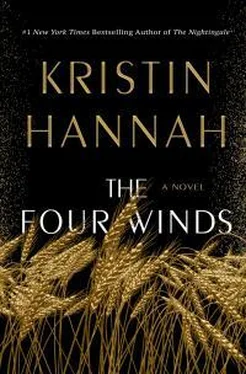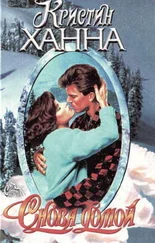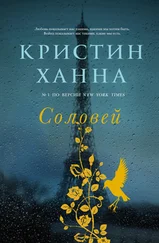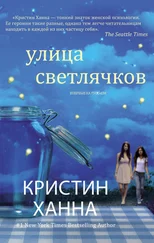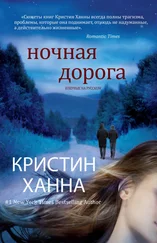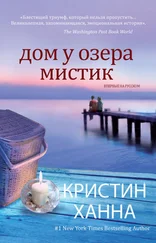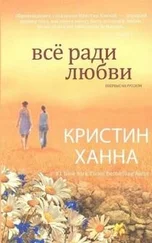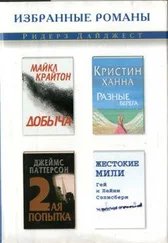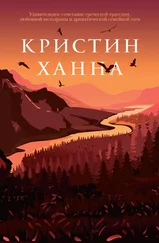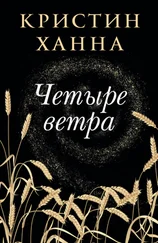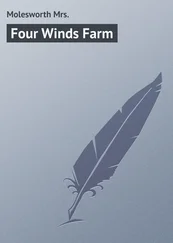Sure. They didn’t mind cheating people, these big growers, but they hated being robbed. They would love to put someone away for armed robbery.
Loreda inched forward in line, her heart pounding, her mouth dry, but none of the vigilantes even glanced at the women standing in line to do laundry.
Sometimes it was good to be a woman.
The men ran through the camp, looking for boys, questioning them, snatching anything from their hands, barking out questions.
Then it was over.
When they were finally gone, Loreda stepped out of line and walked along the fence line out of the camp, carrying her laundry bag full of money. No one looked at her twice.
On the main road, she saw red lights flashing. Police going from camp to camp questioning, yanking bystanders aside.
Loreda drove back to the hospital.
There, she parked and counted the money.
One hundred and twenty-two dollars. And ninety-one cents.
A fortune.
THAT NIGHT THEY MADE an arrowed beeline over the mountains and across the worst part of the Mojave Desert in a darkness devoid of stars, with a pine coffin in the bed of the truck.
There were few other cars on the road. Loreda couldn’t see much beyond what lay in the glow of the headlights. Ant lay sleeping up against her. He hadn’t said a single word since Mom died.
At midnight, just past Barstow, Jack pulled off the road and parked.
Without a tent, they laid blankets and quilts on a flat patch of ground and stretched out, with Ant positioned between Jack and Loreda.
“You want to tell me now?” Jack said quietly, over the sound of Ant’s snoring.
“Tell you what?”
“How you got the money?”
“I did a bad thing for a good reason.”
“How bad?”
“Baseball-bat-in-a-hospital-to-get-aspirin bad.”
“Did you hurt anyone?”
“No.”
“And you won’t do it again and you know it was wrong?”
“Yeah. The world’s topsy-turvy, though.”
“It is.”
Loreda sighed. “I miss her so much I can’t breathe. How will I make it like this for the rest of my life?”
She was grateful he didn’t answer. There was truth in his silence. She already knew this was a grief she would never get over.
“I never said I was proud of her,” Loreda said. “How could I—”
“Close your eyes,” Jack said. “Tell her now. I’ve been talking to my mom that way for years.”
“Do you think she hears?”
“Moms know everything, kid.”
Loreda closed her eyes and thought of all the things she wished she’d said to her mother. I love you. I’m proud of you. I’ve never seen anyone so brave. Why was I so mean for so long? You gave me wings, Mom. Did you know that? I feel you here. Will I always?
When she opened her eyes, there were stars overhead.
EPILOGUE
1940
I AM STANDING BEHIND the farmhouse in a field of blue-green buffalo grass. To my left, a sea of golden wheat waves in the breeze. My grandparents’ farm has been recontoured, as have all the big farms in the county. Newspapers credit the President’s soil conservation plan for rescuing the Great Plains, but my grandmother says it was God who saved us; God and His rain.
I look like any other girl my age, but I am different from most. A survivor. There is no way to forget what we went through in the Great Depression or to unlearn the lessons of hardship. Even though I am only eighteen, I remember my childhood as a time of loss.
Her.
She is what I miss every day, what I cannot replace.
I walk toward the family cemetery behind the house. It has been restored in the past few years: New white fencing surrounds the square of lush grass. One of us waters it every day. Asters bloom along the fence. Every new bud brings a smile. Nothing is ever taken for granted.
I mean to take a seat on the bench my grandfather built, but for some reason I remain standing, staring down at her headstone. She should be here today, beside me. It would mean so much to her … and more to me. I hold tightly to her journal. The few words she wrote will have to last me a lifetime.
I hear the gate open behind me. I know it is my grandmother, following me. She can sense when the sadness rises in me; some days she gives me space with my grief, some days she takes my hand. I don’t know how, but she always knows which I need.
The gate creaks shut.
My grandmother moves in to stand beside me. I can smell the lavender she puts in her soap and the vanilla she has used in today’s baking. Her hair is white now; she calls the color her badge of courage. “This came for you in the mail today. From Jack.”
She hands me a large yellow envelope, with a return address in Hollywood. Jack is on to another fight these days, against fascism, now that there is war in Europe.
I open the package. Inside is a slim book with a marked page. I open the book to that page.
It is a grainy black-and-white photograph of my mother, standing in the back of a truck, with a megaphone to her mouth. The caption reads: Union organizer Elsa Martinelli leads strikers amid a spray of tear-gas bombs and bullets.
I touch the picture, as if I’m blind and my fingers can somehow reveal a deeper image. I close my eyes and remember her standing there, shouting, “ No more, no more…”
“The day she found her voice,” I say.
My grandmother nods. It is a thing we have spoken about often in the past few years.
“You should have seen her,” I say. “I was so proud of her.”
“As she would be of you today,” Grandma says.
I open my eyes and see the headstone in front of me.
Elsa Martinelli
1896–1936
Mother. Daughter.
Warrior.
“I wish I’d told her I was proud of her,” I say quietly. Regret reemerges at the oddest moments.
“Ah, cara, she knows.”
“But did I say it? Everything was so terrible, and I … looked past her. I kept thinking my life was out there, somewhere else, when it was right beside me. She was right beside me.”
“She knew,” Grandma says gently. “And now it is time to go.”
“How can I leave her?”
“You won’t. As she will never leave you.”
In the distance, I hear Ant’s laughter. I turn and see him and our golden retriever running this way, bumping into each other. Grandpa is waiting by the windmill to drive me to the train station so that I can go to college in California, in a city near the sea.
California, Mom. I’m going back.
Unbroken.
“A train does not wait,” my grandmother says. “Do not dawdle.”
I hear her walk away and know that she is giving me a last moment here alone, as if the words I have been unable to find for years will suddenly come to me. “I’m going to college, Mom.”
A breeze moves through the buffalo grass; in it, I swear I hear her voice and remember her long-forgotten words: You are of me, Loreda, in a way that can never be broken. You taught me love. You, first in the whole world, and my love for you will outlive me.
It is a single perfect memory. A goodbye that gives me peace and courage. Her courage. If I have even a sliver of it, I will be lucky.
Be brave.
It was the last thing she said to me in this world, and I wish I’d told her that her courage would always guide me. In my dreams, I say, I love you, I tell her every day how she shaped me, how she taught me to stand up and find my woman’s voice, even in this man’s world.
This is how my love for her goes on: in moments remembered and moments imagined. It’s how I keep her alive. Hers is the voice in my head, my conscience. I see the world, at least in part, through her eyes. Her story—which is the story of a time and land and the indomitable will of a people—is my story; two lives woven together, and like any good story, ours will begin and end and begin again.
Читать дальше
